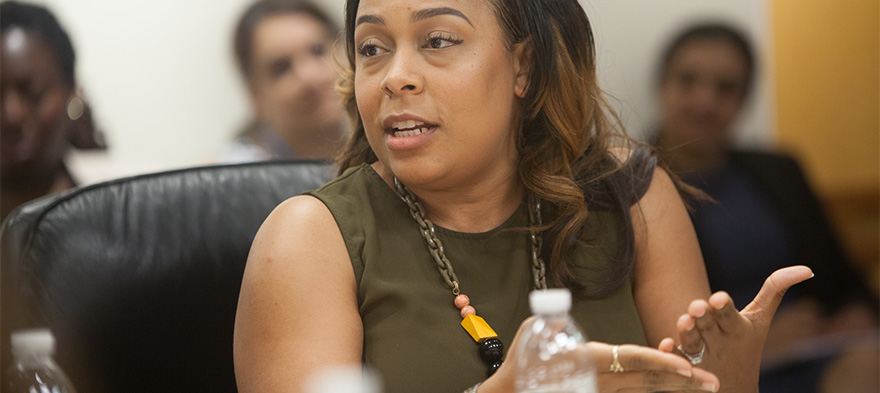
Dec 2, 2016 12:00:00 AM
The dismissal of Black teachers as experts and professionals (beyond discipline) led Black teachers to feel they were passed over for advancement opportunities, despite being just as—or more—qualified than their colleagues.The ability to connect with Black students, manage classrooms, and deliver content are hugely important skills and they are being overlooked as valuable skills. That is a problem. Rather than be acknowledged for hard work that is wrongly perceived as “easy” or “natural” for Black educators, we are overlooked. And on the contrary, White teachers are praised when they make an effort to tackle racial barriers and reach their Black students. Because that takes work, right? That takes intense planning, thinking and reflection to figure out how to help Black kids see past race right?
The need to work harder in order to be seen as adequate and professional also made Black teachers feel pressured to police their own behavior so they could be seen as more professional. Assumptions about their demeanor—that they were too loud or too harsh, for instance—often required teachers to “code switch,” or regulate their behavior based on context in order to fit into their school. By trying not to fulfill other’s stereotypes of them, teachers hoped that meeting a particular standard of professionalism would remove any distracting idiosyncrasies and allow them to be recognized for their work.It’s defeating to feel tolerated rather than celebrated. To watch the fleeting glimpse of praise and growth pass you each year and instead falsely smile at the progress of your White counterparts. All the reasons I wanted to work within the school system are all the reasons that make being an employee within the school system so very hard. This is the hardest job I’ve ever had. Most Black educators go into schools thinking they’ll be an asset, but much like the teachers featured in Education Trust’s piece, there are times I have felt unsure that I will be able to stay long enough to even believe I’m good enough at my job. To feel like I’m having enough of an impact. To feel recognized for the important skill set that I bring to the work. Having said all that, I’m not giving up.
Danielle Sanders is a school behavior interventionist in New Orleans, Louisiana. She is responsible for implementing restorative practices as a behavioral intervention to support scholars when demonstrating behaviors that are not in line with school culture. Danielle blogs about education in Louisiana at Second Line Blog.
The story you tell yourself about your own math ability tends to become true. This isn’t some Oprah aphorism about attracting what you want from the universe. Well, I guess it kind of is, but...
If you have a child with disabilities, you’re not alone: According to the latest data, over 7 million American schoolchildren — 14% of all students ages 3-21 — are classified as eligible for special...
The fight for educational equity has never been just about schools. The real North Star for this work is providing opportunities for each child to thrive into adulthood. This means that our advocacy...
Your donations support the voices who challenge decision makers to provide the learning opportunities all children need to thrive.
Ed Post is the flagship website platform of brightbeam, a 501(c3) network of education activists and influencers demanding a better education and a brighter future for every child.
© 2020–2024 brightbeam. All rights reserved.
Leave a Comment